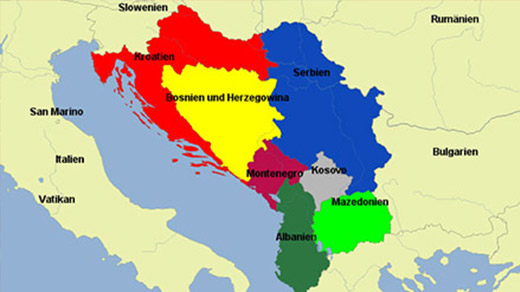At the end of November the Regional Council for Cooperation (RCC) published its results of the „Balkan barometer 2017“. The Balkan barometer started functioning in 2015 and was held this year for the third time. It consists of multiregional questionnaires in the seven countries of the Balkan- Albania, Kosovo, Macedonia, Bosnia and Herzegovina, Serbia. Montenegro and Croatia, which is already a member of the EU.
The research was orientated on the standpoints of inhabitants towards the government politics, public services as well as the legal measures about the membership in the EU, efficiency of fighting against corruption and the opposition to climate changes.
The results are showing, that the people are under impact of their social networks strongly anchored in their home countries and that they do not trust the politics, which is a source of instability. An additional problem appears to be the high rate of unemployment, primarly caused by the unsufficient qualification and prejudices against ethnical groups.
So it is not surprising, that in Albania, Macedonia and Kosovo the general standpoint about the membership in the EU is mainly positive. On the contrary the inhabitants of Serbia and Bosnia and Herzegovina are not convinced about the positive effects of the membership. Also the Croatian people are critical about their status in the Unity. The inhabitants of Montenegro have no clear opinion about the positive and negative sides of the membership. In total the share of the supporters of the EU membership has slightly increased, however there is no clear tendency about the complete approval of the membership to be traced.

